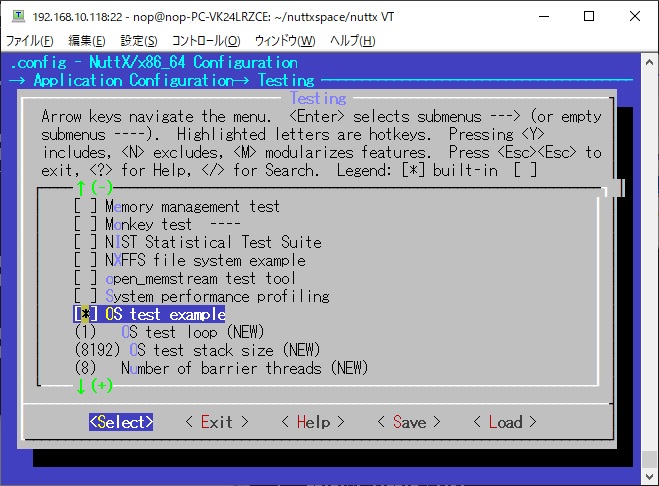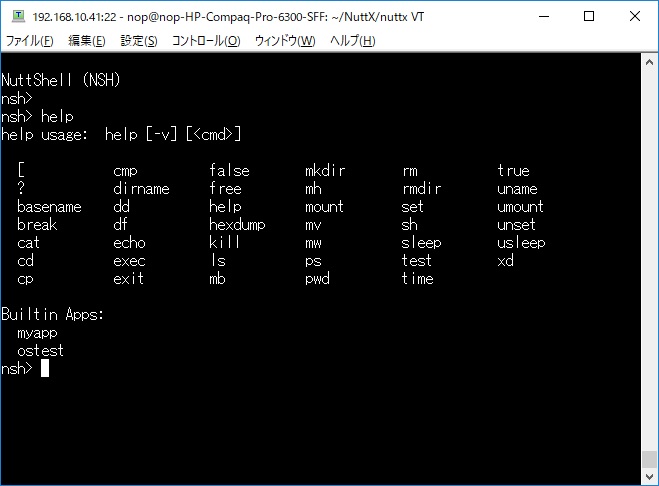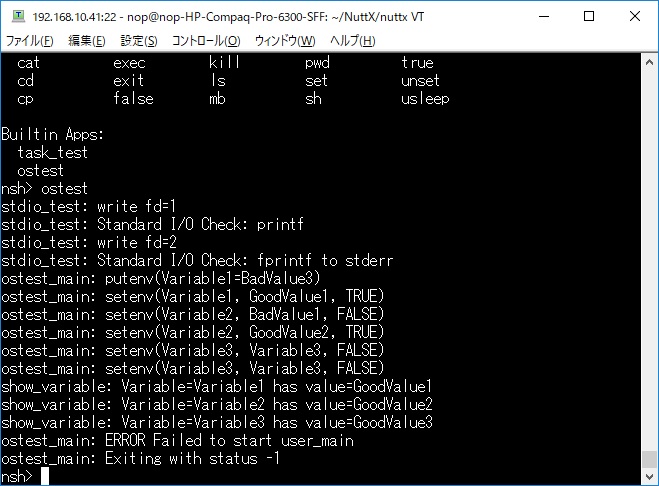/* Operations on streams (FILE) */
void clearerr(register FILE *stream);
int fclose(FILE *stream);
int fflush(FILE *stream);
int feof(FILE *stream);
int ferror(FILE *stream);
int fileno(FAR FILE *stream);
int fgetc(FILE *stream);
int fgetpos(FILE *stream, fpos_t *pos);
char *fgets(char *s, int n, FILE *stream);
FILE *fopen(const char *path, const char *type);
int fprintf(FILE *stream, const char
*format, ...);
int fputc(int c, FILE *stream);
int fputs(const char *s, FILE *stream);
size_t fread(void *ptr, size_t size, size_t n_items, FILE
*stream);
FAR FILE *freopen(FAR const char *path, FAR const char
*mode,
FAR FILE
*stream);
int fseek(FILE *stream, long int offset,
int whence);
int fsetpos(FILE *stream, fpos_t *pos);
long ftell(FILE *stream);
size_t fwrite(const void *ptr, size_t size, size_t
n_items, FILE *stream);
FAR char *gets(char *s);
FAR char *gets_s(FAR char *s, rsize_t n);
void setbuf(FAR FILE *stream, FAR char *buf);
int setvbuf(FAR FILE *stream, FAR char
*buffer, int mode, size_t size);
int ungetc(int c, FAR FILE *stream);
/* Operations on the stdout stream, buffers, paths, and
the whole printf-family * /
int printf(const char *format, ...);
int puts(const char *s);
int rename(const char *source, const
char *target);
int sprintf(char *dest, const char
*format, ...);
int asprintf (FAR char **ptr, FAR const
char *fmt, ...);
int snprintf(FAR char *buf, size_t size,
const char *format, ...);
int sscanf(const char *buf, const char
*fmt, ...);
void perror(FAR const char *s);
int vprintf(const char *s, va_list ap);
int vfprintf(FILE *stream, const char
*s, va_list ap);
int vsprintf(char *buf, const char *s,
va_list ap);
int vasprintf(FAR char **ptr, const char
*fmt, va_list ap);
int vsnprintf(FAR char *buf, size_t
size, const char *format, va_list ap);
int vsscanf(char *buf, const char *s,
va_list ap);
/* Operations on file descriptors including:
*
* POSIX-like File System Interfaces (fdopen), and
* Extensions from the Open Group Technical Standard,
2006, Extended API Set
* Part 1 (dprintf and vdprintf)
*/
FAR FILE *fdopen(int fd, FAR const char *type);
int dprintf(int fd, FAR const char *fmt,
...);
int vdprintf(int fd, FAR const char
*fmt, va_list ap);
/* Operations on paths */
FAR char *tmpnam(FAR char *s);
FAR char *tempnam(FAR const char *dir, FAR const char
*pfx);
int remove(FAR const
char *path);
|


